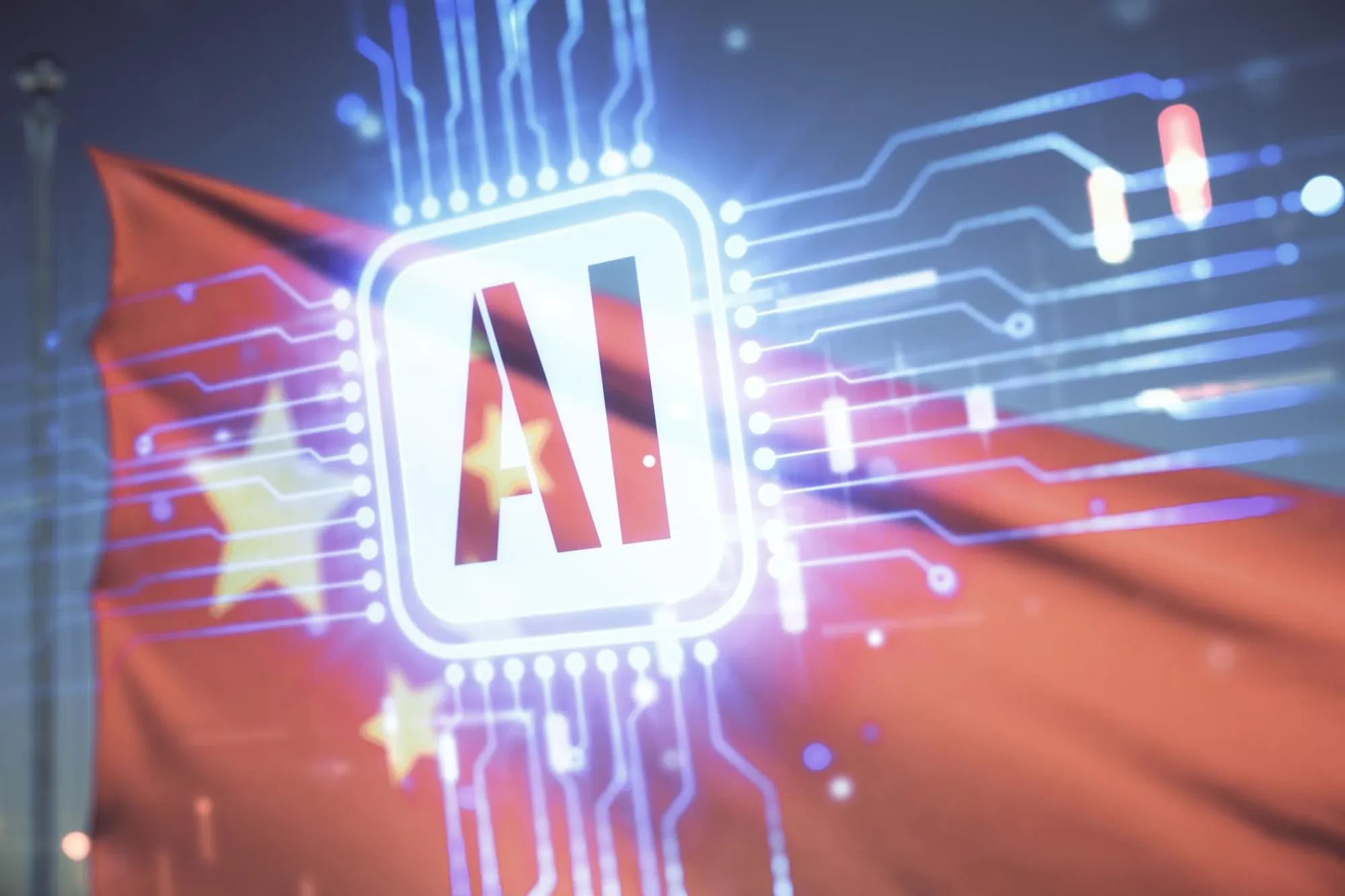In recent years, China has emerged as a global leader in artificial intelligence (AI) development, sparking concerns about its growing influence over powerful technologies. One key player in this conversation is DeepSeek, a cutting-edge AI company that has garnered attention for its breakthroughs and advancements in AI. But with this rise to prominence comes a significant question: How much control should one country—specifically China—have over technologies that could shape the future of our world?
The Rise of DeepSeek and Its Impact on AI Development
DeepSeek has emerged as one of the most influential players in the rapidly growing field of artificial intelligence. The company’s advancements in areas like machine learning, natural language processing (NLP), and data analytics have set a new standard for AI capabilities. These developments have not only pushed the boundaries of what AI can achieve but have also positioned DeepSeek as a key driver of innovation in the tech world. Other companies in the industry, while also pushing the envelope, are finding it increasingly difficult to match DeepSeek’s speed and scope of progress. This creates a competitive environment where DeepSeek, with its vast resources and cutting-edge technology, is at the forefront, making substantial contributions to AI research and development.
However, this rapid progress has not come without its concerns, particularly surrounding the implications of China’s growing dominance in the AI sector. DeepSeek’s success is not just a triumph of technology; it also serves as a reflection of China’s broader ambition to become a global leader in AI. This raises critical questions about the long-term consequences of a single nation having significant control over one of the most transformative technologies of the modern era. As AI begins to integrate into more aspects of daily life—whether it’s how we communicate, shop, or even think—its influence expands far beyond the tech industry. In fact, AI is increasingly involved in shaping societal norms, economic practices, and political structures. This central role of AI means that those who control it wield significant power.
The fact that China, with its robust political and economic influence, is leading the charge in AI development is causing alarm for many. While technological advancements are usually seen as beneficial, the concentration of AI technology in the hands of one country is problematic for several reasons. First, it brings into question the ethical use of AI. Will this technology be used to improve global conditions, or could it be weaponized for political gain? Second, there is the issue of transparency and accountability. As China continues to develop AI tools with applications in various sectors—from healthcare to security—there’s growing concern about who gets to decide how these tools are used, and for what purpose.
Why the Concerns Over Chinese Control of AI Are Growing
- Potential Misuse of Technology: The central fear regarding China’s growing dominance in AI development revolves around the misuse of the technology. As AI becomes more integrated into various sectors, from healthcare to military applications, its potential for harm increases if used with malicious intent or under authoritarian control. This concern is heightened by China’s track record of using technology for surveillance and social control.
- China’s History of Surveillance: China has been criticized for its extensive surveillance practices, including the use of facial recognition, social credit scoring, and the monitoring of its citizens’ online activities. With AI becoming an increasingly central tool in monitoring behavior and controlling access to information, there’s growing anxiety that the government could use AI to further tighten its grip on its population. This could extend beyond national borders, as China’s AI could be adopted by other authoritarian regimes for similar purposes.
- Risk of Authoritarian Control: The fear is not just about how China will use AI within its own borders, but how the technology could potentially spread globally. As AI systems developed in China begin to influence other countries, there’s a concern that these tools could be used to reinforce authoritarian practices elsewhere, eroding freedoms and limiting individual rights. The possibility of AI-driven censorship, propaganda, and social control on a global scale raises alarms for those advocating for democracy and human rights.
- Global Impact of China’s AI Leadership: The growing influence of Chinese companies in the AI sector, like DeepSeek, means that China could set the global standards for AI development. With this power, the country could shape how AI is used, controlled, and regulated worldwide. Countries without the technological infrastructure to compete might be forced to adopt Chinese AI systems, even if those systems are not aligned with their values or priorities.
- Data Privacy and Security Risks: AI systems rely heavily on data—vast amounts of personal and sensitive information—that can be used to train and optimize algorithms. The centralized control of AI by China raises serious concerns about data privacy, as China’s policies might prioritize surveillance over individual privacy. The question of who owns and controls this data becomes especially critical, as the Chinese government has access to vast amounts of data within its own borders.
China’s Technological Advancements: A Double-Edged Sword
| Advancement | Potential Benefits | Potential Risks | Examples of Applications | Global Impact |
| Healthcare AI | – Improved diagnosis accuracy | – Potential for discriminatory algorithms in healthcare | – AI-driven diagnostic tools | – Could lead to global improvements in medical technology but may face issues in accessibility and fairness. |
| AI in Education | – Personalized learning experiences | – Surveillance of student behavior and academic performance | – Adaptive learning platforms | – If implemented globally, it could increase educational access but raise concerns about privacy and data security. |
| Transportation AI | – Enhanced safety and efficiency in transportation | – Use in surveillance of individuals during travel | – Autonomous vehicles, AI-controlled traffic systems | – Positive global effects in terms of safety but may increase monitoring and control over personal movements. |
DeepSeek’s Role in This Debate
DeepSeek’s rapid advancements in artificial intelligence are a significant focal point in the ongoing debate about the future of AI. As one of the leading AI companies in the world, DeepSeek has made groundbreaking strides in machine learning, natural language processing, and data analytics. Its ability to push the boundaries of what AI can accomplish has captured global attention and raised essential questions about the broader implications of AI development. The company’s success is not merely a technological achievement; it’s a harbinger of the shifts that could reshape the way societies function on a global scale. As DeepSeek continues to innovate, it highlights the increasing centrality of AI in various aspects of life, from commerce and communication to security and personal freedoms.
However, the growing influence of DeepSeek is especially concerning because the company is based in China, a country whose government has a significant role in directing the future of its technological industries. Unlike many Western companies, where technological development is often driven by a mix of public and private sectors with a degree of regulatory oversight, DeepSeek operates within the context of China’s centralized, government-driven model. The Chinese government not only supports AI advancements through direct funding and initiatives but also plays a key role in shaping the legal and ethical frameworks within which these technologies are developed and deployed. This means that DeepSeek’s innovations are not merely reflective of the company’s capabilities but also of China’s political objectives, which can have profound implications for the global landscape.
As AI becomes an increasingly central part of global infrastructure, the concern arises that companies like DeepSeek could wield disproportionate power over how AI technologies are shaped and controlled. With China’s government exercising significant influence over the country’s technological landscape, there is an underlying fear that DeepSeek, intentionally or unintentionally, could be used as a tool for advancing the state’s broader political and economic goals. This includes the potential for China to exert control over AI technologies used in other countries, particularly through the export of AI-powered systems that may not adhere to international ethical standards. The influence of DeepSeek’s AI technologies could, in this context, create a situation where nations that rely on Chinese-made systems risk having their own technological ecosystems shaped by China’s priorities.
Global Concerns About the Concentration of AI Power
- Monopoly Over AI Technologies: The concentration of AI power in the hands of a few countries raises the risk of a technological monopoly. This could limit competition, stifle innovation, and reduce the diversity of approaches to AI development. As a result, countries that do not have the resources or infrastructure to develop AI may find themselves at the mercy of the leading nations that control the technology.
- Impact on Global Security: AI technologies are increasingly being used in national security and defense systems. The concentration of AI power in a few countries means that those nations could use AI to gain strategic military advantages, potentially disrupting global stability. Additionally, AI could be weaponized, leading to the creation of autonomous weapons or surveillance tools that could alter the balance of power in international relations.
- Ethical Concerns: With a few countries controlling AI, there is a risk that ethical standards will be compromised in favor of political or economic goals. AI systems developed by governments with less stringent ethical frameworks may be deployed in ways that prioritize efficiency or control over human rights and fairness. The absence of universally accepted ethical guidelines in AI development can lead to abuses of power and discrimination.
- Human Rights Implications: The concentration of AI power, especially in countries with authoritarian regimes, raises significant human rights concerns. AI can be used to monitor citizens, restrict freedoms, and enforce conformity. The potential for AI-powered surveillance systems, such as facial recognition and social credit scoring, could result in widespread violations of privacy and personal freedoms. This concentration of power could have global repercussions if such technologies are exported to other countries or adopted internationally.
The Ethics of AI in the Hands of a Single Country
| Ethical Concern | Potential Benefits | Potential Risks | Real-World Examples | Global Impact |
| Transparency in AI Development | – Clear understanding of how AI is designed and used | – Lack of transparency in AI systems may lead to misuse | – Open-source AI frameworks used for collaborative development | – Global trust in AI systems may be undermined, especially in authoritarian contexts. |
| Data Privacy and Security | – Increased ability to protect personal data | – Risk of mass surveillance, loss of personal privacy | – China’s use of facial recognition and data collection systems | – Potential erosion of global privacy norms, leading to more invasive monitoring. |
| Ethical Use of AI | – AI advancements could enhance society in healthcare, education, etc. | – AI could be used for political control and social manipulation | – China’s social credit system and AI-driven surveillance tools | – The ethical implications could set a global precedent, influencing international AI policies. |
| Political and Economic Gain | – Potential to create economic growth through AI advancements | – AI could be exploited to suppress dissent and promote government agendas | – Use of AI to control media narratives and public opinion in China | – Could set a global standard for governments using AI to maintain control over populations. |
| Respect for Individual Freedoms | – AI could potentially empower individuals with greater access to resources | – Risk of AI being used to restrict freedoms, enforce conformity | – Social credit systems or AI surveillance restricting personal behavior | – Worldwide implications for human rights if AI is used to stifle free speech and dissent. |
China’s Vision for the Future of AI
China’s approach to artificial intelligence (AI) is both ambitious and strategic. The country has set its sights on dominating the global AI market, leveraging the technology to serve its political, economic, and global objectives. In 2017, China unveiled the “New Generation Artificial Intelligence Development Plan,” which outlined a detailed strategy for becoming a global leader in AI by 2030. The plan highlighted the need for rapid advancements in AI research and the integration of AI technologies across various sectors, including healthcare, transportation, and manufacturing. This blueprint aimed to not only solidify China’s leadership in AI but also transform the country into a powerhouse capable of shaping global AI standards and policies.
Central to this vision are Chinese companies like DeepSeek, which have made significant strides in developing cutting-edge AI technologies. As one of the leading players in the AI field, DeepSeek is at the forefront of this push, helping to fulfill China’s national AI ambitions. The company’s progress in machine learning, natural language processing, and data analytics demonstrates China’s ability to develop technologies that rival or even surpass those of Western competitors. With such advancements, it’s increasingly likely that China will meet or exceed its 2030 target, potentially reshaping the AI landscape long before that deadline. The rapid growth of companies like DeepSeek positions China not just as a player in the AI field, but as a leader in driving the global AI agenda.
But what does China’s dominance in AI mean for the rest of the world? The consequences of China emerging as the global hub for AI are profound, with implications that reach far beyond technology. AI has become integral to various industries, from healthcare and education to defense and governance. If China is allowed to control the development and deployment of AI technologies, it could have a significant impact on how industries around the world operate. Countries and businesses may find themselves dependent on Chinese AI systems, which could introduce challenges in terms of data privacy, security, and compliance with international standards. Furthermore, China’s control over AI could influence how other nations approach their own AI strategies, potentially leading to a homogenization of global AI policies that align with China’s approach.




